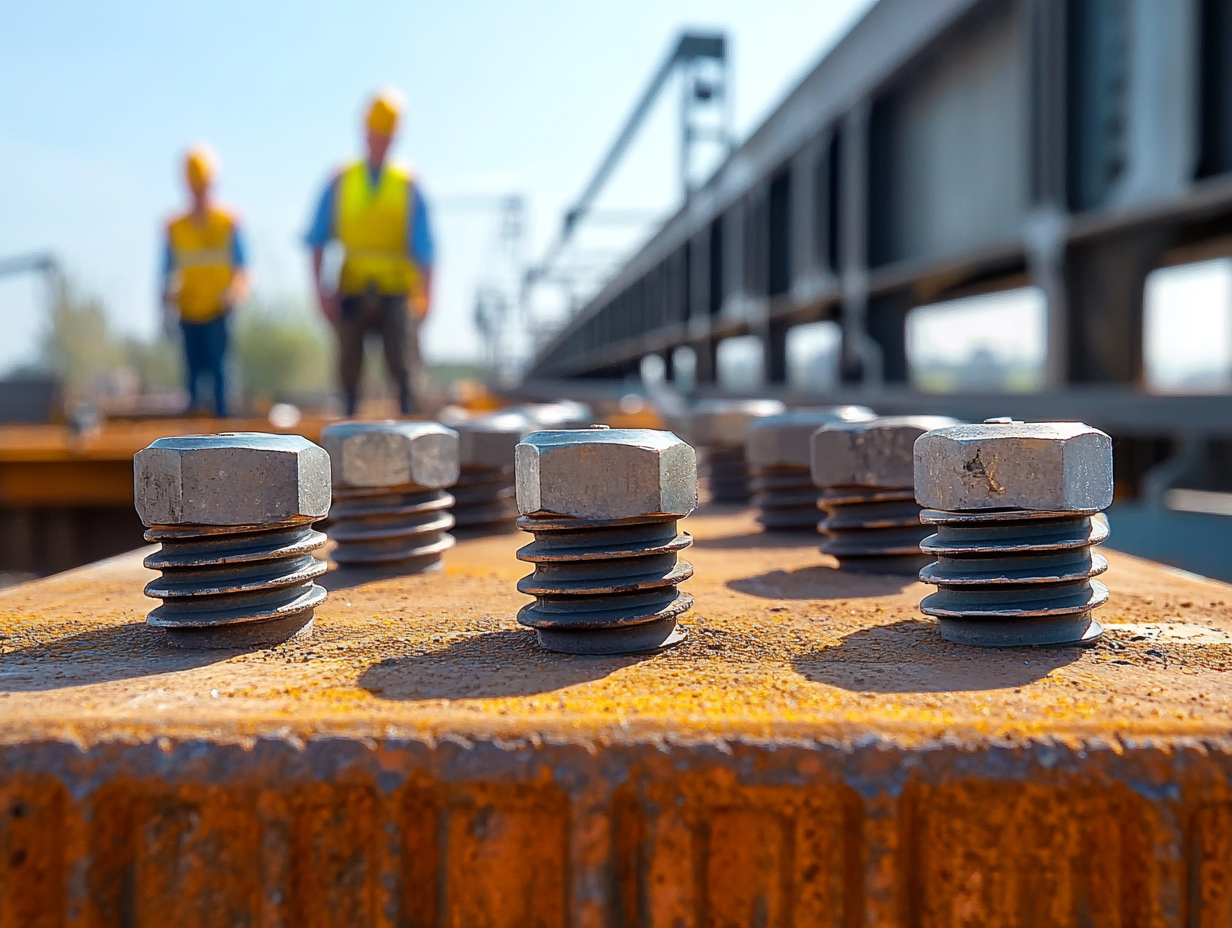

Bolts are a critical component in steel construction, used for securing connections, distributing loads, and maintaining structural integrity. Choosing the right bolt type ensures safety, durability, and performance in bridges, buildings, industrial plants, and machinery. This blog explores the different types of bolts, their characteristics, and applications in steel structures.
- Common Types of Bolts in Steel Construction
- a) Ordinary Bolts (Non-High-Strength Bolts)
✔ Used in low-load applications where high strength is not required.
✔ Common in temporary or secondary structures.
✖ More prone to loosening under heavy vibrations and dynamic loads.
- b) High-Strength Bolts (Preloaded Bolts)
✔ Designed for high-load and high-stress applications.
✔ Used in bridges, heavy steel structures, and high-rise buildings.
✔ Preloaded to generate clamping force, improving fatigue resistance.
- c) Tension Control Bolts (TC Bolts)
✔ Used where precise torque control is required.
✔ Self-tightening mechanism ensures consistent preload.
✔ Commonly applied in bridge construction and high-strength steel connections.
- d) Anchor Bolts
✔ Used to secure steel columns and equipment to concrete foundations.
✔ Available in L-shaped, J-shaped, and straight configurations.
✔ Critical for wind turbines, transmission towers, and industrial machinery.
- e) Expansion Bolts
✔ Used for connecting steel components to concrete surfaces.
✔ Expands inside the concrete to create a strong mechanical bond.
✔ Suitable for warehouse storage racks, elevators, and support beams.
- f) U-Bolts
✔ Designed for pipe and cylindrical structure connections.
✔ Common in mechanical systems, railways, and piping supports.
- Bolt Grades and Strength Ratings
✔ Grade 4.6 – Standard strength bolts for light structural applications.
✔ Grade 8.8 – Medium-strength bolts for general steel connections.
✔ Grade 10.9 – High-strength bolts for industrial structures and bridges.
✔ Grade 12.9 – Ultra-high-strength bolts for heavy machinery and extreme loads.
- Applications of Bolts in Steel Structures
✔ Bridges and Highway Overpasses – High-strength and tension control bolts ensure structural stability.
✔ High-Rise Buildings – Preloaded bolts provide rigid and durable column-beam connections.
✔ Industrial Plants and Factories – Bolts fasten steel supports, conveyors, and heavy equipment.
✔ Cranes and Heavy Machinery – Anchor and expansion bolts secure lifting mechanisms and rail systems.
✔ Offshore Platforms and Transmission Towers – Corrosion-resistant bolts provide long-term durability.
- Choosing the Right Bolt for Your Project
✔ Consider Load Requirements → High-strength bolts for critical connections.
✔ Assess Environmental Conditions → Corrosion-resistant coatings for outdoor structures.
✔ Account for Vibration and Fatigue → Preloaded and tension control bolts for high-stress environments.
✔ Ensure Compliance with Standards → Follow ISO, DIN, and ASTM guidelines for bolt selection and installation.
- Selecting the right bolt type in steel structures improves safety, efficiency, and longevity. Understanding strength ratings, installation methods, and load requirements ensures the best performance for every application.

